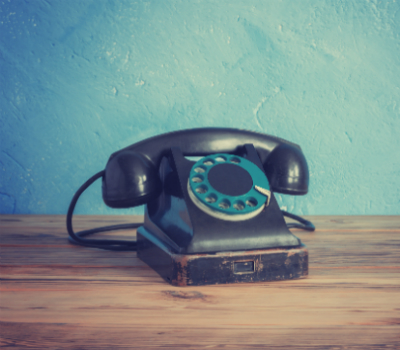Frequently Asked Questions
Many people have questions that they may or may not feel comfortable asking their funeral director. We hope this will be of some help to you and if you think of something else you would like us to add to this list of questions, please contact us by email or telephone.
WHAT DO WE DO IF OUR FAMILY DEATH OCCURS AWAY FROM HOME? Our funeral home staff will arrange with another funeral home or mortuary, where the death occurred, to have preparation and transportation made back to our funeral home. We can also help you if you are planning to have a service prior to having the family member returned to your home area.
WHY IS A FUNERAL IMPORTANT? For thousands of years, funerals have allowed survivors to express their feelings about the death of someone they love. The rituals provide comfort when things seem chaotic and out of control. The funeral is for expressing intense grief. For many, a visitation followed by a funeral or memorial service is the first step in the grieving process. It is a time when friends, family and other guests can come together to grieve openly and to support one another in a community environment. It is also a time to say good-bye. Viewing the deceased can bring a sense of closure to the bereaved who may be in shock and denial.
WHAT DOES A FUNERAL DIRECTOR DO?
- Pick up the deceased and transport the body to the funeral home (anytime day or night)
- Notify proper authorities, family and/or relatives
- Arrange and prepare death certificates
- Provide certified copies of death certificates for insurance and benefit processing
- Work with the insurance agent, social security or Veteran''s Administration to ensure that necessary paperwork is filed for receipt of benefits
- Prepare and submit obituary to the newspapers of your choice
- Bathe and embalm the deceased body, if necessary
- Prepare the body for viewing including dressing and cosmetizing
- Assist the family with funeral arrangements and purchase of casket, urn, burial vault and cemetery plot
- Schedule the opening and closing of the grave with cemetery personnel, if a burial is to be performed
- Coordinate with clergy if a funeral or memorial service is to be held
- Arrange a police escort and transportation to the funeral and/or cemetery for the family
- Order funeral sprays and other flower arrangements as the family wishes
- Provide Aftercare, or grief assistance, to the bereaved
WHAT IS EMBALMING? It is a process that sanitizes and preserves a dead body. It delays the decomposition process and allows time for viewing and services by the family prior to burial or cremation. It restores a life-like appearance to the body and can enhance the appearance of a body that has undergone a traumatic death or illness. This process can take anywhere from one to three hours to perform. The time spent embalming depends upon the severity of damage to the body, whether it be from traumatic injuries and or by not being able to perform it immediately after notification of the death.
IS EMBALMING REQUIRED WHEN A PERSON DIES? No, however most states insist on embalming under certain circumstances such as when the death is caused by a contagious disease or if final disposition isn''t made within a certain time frame. Embalming preserves the body, often allowing more time for arrangements. It is required if there will be a visitation. If the deceased is to be directly buried or cremated, embalming is not necessary.
WHY SHOULD I BUY MY CASKET OR CREMATION CONTAINER FROM YOUR FUNERAL HOME INSTEAD OF A CASKET OR CREMATION DISCOUNT STORE? The casket and cremation discount stores do not have a history of longevity in the business. Several people have purchased units from these stores and before they know it, these stores are out of business within a year or so after the purchase. Because of their short lived existance, many people who have purchased products have ended up with no product to have for their respective service. Casket and cremation retail stores also have limited suppliers for merchandise, therefore on some units, they do not carry any liability agreement on units that may have already been purchased by the family. We purchase our fine quality products from reputable casket and cremation companies who have been in the business for many years. Their products all come with a liability warranty attached on each unit. With cost being very important to the consumer, most all funeral homes are able to sell merchandise at a lesser price than a retail store, as they have other income to offset their overhead.
IF I CHOOSE TO BE CREMATED, CAN I HAVE A FUNERAL? Yes, cremation can take place either before or after a funeral depending on what type of service you choose. You can have a viewing, funeral/memorial service or burial.
What is a funeral?
A funeral is a ceremony for a deceased person, prior to burial or cremation. A funeral gives the opportunity for family and friends of the deceased to gather and mourn the passing of their loved one, to share cherished memories, and to celebrate their life. A funeral is a vital first step in helping the bereaved heal after the loss of someone special.
What type of service should I have?
If no pre-arrangements have been made, the type of service is entirely up to you, but it is best to consider what the deceased may have wanted. Services are usually held at a funeral home or a place of worship. There are a wealth of different services, ranging from traditional religious or military services, to something a little more unique. Our funeral directors are more than happy to work with you to figure out what would be the most appropriate.
Can I personalize a funeral?
Of course you can! In fact, more and more people are opting for non-traditional, personalized services. There is no one way to celebrate somebody’s life. Let the funeral director know exactly what your desires are and they will honor your wishes.
Do we need to have an obituary notice and what is included in one?
It is highly recommended to have an obituary notice that is either posted in a local newspaper or online. An obituary lets the public know that a death has occurred, and provides them with information about the service. Obituaries generally include the deceased’s full name, age, city, and date of birth, as well as the city they were living in when they died. It also includes the name of the deceased’s spouse, along with the names of anyone else significant in their lives, such as parents, children, or grandchildren. Space may be limited in a newspaper obituary, but you might also wish to include a short sentiment on the life and legacy of the deceased. An online obituary or memorial website offers you the chance to add a lot more about the deceased.
Who are funeral directors and what do they do?
Funeral directors are in charge of all the logistics following a death. They complete all the necessary paperwork, make arrangements for the transportation of the body, and put into action the choices made by the family in regards to the funeral service and the final resting place of the body. Beyond all of this, funeral directors are there to provide emotional support and personal guidance in the wake of a loss.
What happens if the death occurs in the middle of the night or on the weekend?
We are here to help. Funeral directors are available 24 hours a day, 7 days a week, and 365 days a year.
What if a death occurs away from my home town?
We can arrange to have the remains transported from anywhere in the world. We will assume responsibility and make the proper arrangements to have the remains return to the community.
What is embalming and what purpose does it serve?
Embalming sanitizes and preserves the body. It also slows down the decomposition process and enhances the appearance of a body impacted by a traumatic death or illness. Embalming gives time to the family of the deceased to arrange a service, and allows for the possibility of an open-casket viewing.
Do I need to have an embalming?
No. In fact, some religions forbid embalming. Some countries do require embalming by law in order for remains to leave or enter the country. If it is not against your religious custom, embalming is generally recommended, especially if there is an extended gap between death and burial or cremation.
How much does a funeral cost?
The cost of the funeral depends on the services selected. The average cost of a funeral is between $5,000-$7,000; however, the most basic of services can cost as little as $1000. The cost includes all professional services including transportation, embalming and other preparations, the use of a facility for the ceremony, and the purchase of a casket or urn.
Why are funerals so expensive?
Funerals are labor intensive A funeral's cost extends beyond the merchandise, and includes the services of the funeral director. Their role in making the necessary arrangements, filling out forms, and dealing with all the other figures involved after a death (doctors, lawyers, insurance companies). Funeral directors work an average of forty hours per funeral, and the cost of operating a funeral home is included as well. Funeral homes are a 24 hour operation, with extensive facilities that need to be maintained and secured.
What do I do if I am not satisfied with the way a funeral was handled?
Funeral Services in the United States is regulated by the Federal Trade Commission, they can be reached by telephone at 1-877-FTC-HELP (382-4357) or you can fill out a form online at www.ftc.gov. In Canada, funeral services are regulated provincially and this information can be found on the Canadian Consumer Information website at www.consumerinformation.ca.




